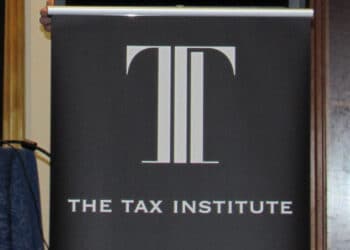Ahead of the public hearing being held by the House economics committee on refundable franking credits next week, the Institute of Public Accountants (IPA) defended the refund of imputation credits as a well-established feature of the taxation system.
IPA chief executive Andrew Conway said the inquiry into the implications of removing refundable franking credits will highlight the significant implications attached to any change in government policy on refunding imputation credits.
“If we were designing a new tax system today, you would most likely not have full imputation where the taxation is assessed in the hands of the recipient and any excess franking credits are refunded.
“In today’s economic circumstances, it would be difficult to justify from a fiscal sustainability perspective,” said Mr Conway.
“However, the refunding of imputation credit policy has been in operation for close to two decades and removing it in a piecemeal way without dealing with the consequences is fraught with danger.”
The case for removing dividend imputation was weak, he said, and any tinkering needs to be assessed against some alternative benchmark tax system such as removing dividend imputation entirely and replacing it with a discounted tax rate.
“More importantly, we need to be looking at how we tax all forms of savings more consistently. A more holistic approach to taxing personal savings across all asset classes as recommended by the Henry Review would be more beneficial than changing one aspect in isolation,” said Mr Conway.
“We do not support any changes in the removal of refundable franking credits unless it is associated with more holistic tax changes to the treatment of savings more broadly. A survey of our members also shows that 95 per cent of respondents do not support any change.”



The changes, TSB, TBC etc, made by Libs made this policy superfluous. It should be tossed but old Bill won’t admit the Lib policies were better designed to remove excess tax benefits to the wealthy than his, I am Robin of Loxley, policy stance once he announced it. That is if he even understands what effects these policies have which is dubious given the comments and changes on the fly that come out of them.
It is great to see a debate about a policy of an Opposition party that may or may not come into power. If this debate had been in play for the Transfer Balance Account then the $1.6M would have been uplifted and there would have been no retrospectivity for existing members, who by the way are now have retirement accumulation balances eating up more franking credits.
At this rate, when the next Labour government gets in, they may well say that you can only absorb your PAYG withholding credits against your net taxable income, and no refunds. This will be besides the likely changes to negative gearing and capital gains tax. They may also change the superannuation rules and the taxation of super again.
Why are PAYG refunds made?